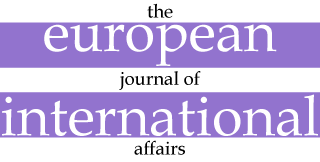Have no Fear!
The lasting legacy of Pope John Paul II
For those accustomed to living in Italy’s capital as in a contemporary modern city, the days that elapsed from Pope John Paul II’s final decline and funeral to the election of his successor on Saint Peter’s throne presented the very unusual experience of living for a week in Rome as Caput Mundi, the global capital of Christianity, the centre of a universal Empire whose splendour blinds and subordinates even the barbarians who have not yet bowed to its faith or moral laws.
American soft power, or the presumed rayonnement culturel de la France, simply couldn’t compare. Nor could any other such claim hold its own during these days. Just to share the limelight of the Rome event and not appear cut off from the enormous and universal wave of consensus over, and recognition of, the deceased pope’s leadership, the present tenant of the White House and his two immediate predecessors dashed to the Eternal City. There they humbly fell in line with some two hundred other heads of state and government only to find that they had been seated in the second row of the section of St. Peter’s Square reserved for foreign delegates. In the same row sat Jacques Chirac, as well, the irony of alphabetical seating (in French) having placed Etats Unis to the left of France.
In the front row Vatican protocol gave precedence over the American President to other heads of state such as Fra’ Andrew Bertie, His Most Eminent Highness the Prince and Grand Master of the Sovereign Military Order of Malta. This special treatment stirred up some delighted, vaguely anti-American musings in the press, above all in Britain, and certainly helped the UK better digest the fact that Tony Blair had been seated far back in row five. Former President Jimmy Carter and America’s Queen Mother Barbara Bush could not attend at all, since the US delegation had only five seats, whereas George W. Bush’s brother Jeb, who declares himself to be a converted Catholic and certainly is an aspiring successor to the Presidency, had to content himself by politely and discreetly attending the second, much less glamorous ceremony a few days later for the coronation of Benedict XVI.
But for those who live in Rome as citizens of the Republic of Italy and who witnessed the astonishing event as secular observers, an inescapable parallel took shape between the capital of Christianity and the capital of Italy. It finally became clear to them why, in 1946, on the occasion of the referendum between Republic and Monarchy, Italy’s most prestigious anti-fascist philosopher Benedetto Croce decided to vote for the Ancient Regime and shocked everyone. The wise old man knew that no President of the Italian Republic could ever equal the prestige, power and glory emanating from the other side of the Tiber. Despite the seven hills upon which Rome is built, the single “Vatican Hill” as ideal centre of world Catholicism would always overshadow the symbols of imperial and secular Rome. Keeping a crowned head at the Quirinal Palace, home of Italy’s head of state, seemed to him the only way to maintain a countervailing secular prestige in face of the Holy See, albeit a very weak one. The feeble House of Savoy would have only one single crown to counterbalance the Pope’s triple tiara, the Triregnum.
Log in to Read More





